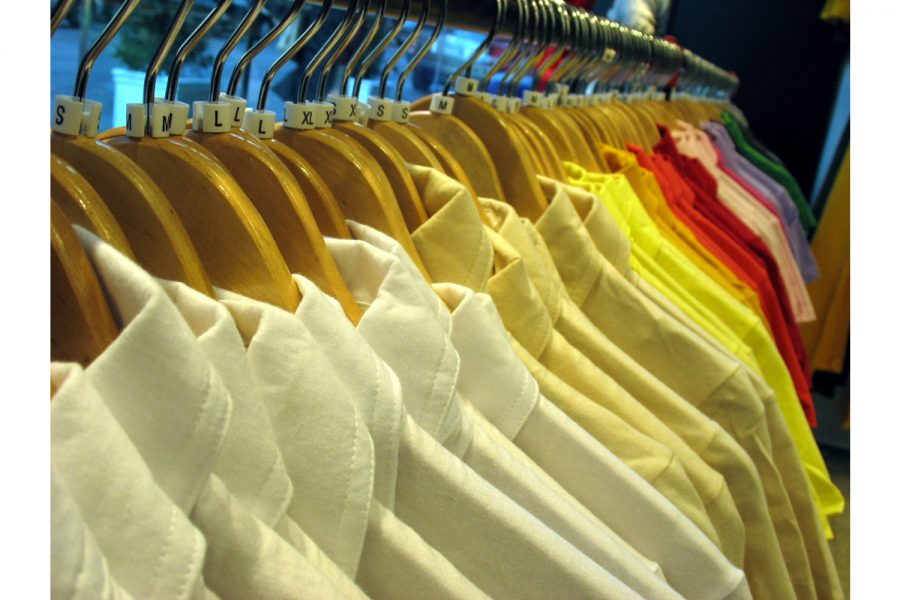Skinny shaming is not good, but it’s not systemic exclusion
Opinion: Why skinny-shaming isn’t the same as fat-shaming
Body-shaming affects everyone, but our struggles are incomparable
April 26, 2021
We’ve all heard of fat-shaming, and we’ve all seen it, too. People being bullied for being overweight and shamed for standing outside society’s expectations of what a human body should look like. On the other end, you’ve probably also heard of “skinny-shaming,” when people are made fun of for being underweight or too far on the other end of the spectrum.
Despite both of these struggles being valid, I think we can all agree that being told to “eat a burger” and being socially oppressed for your weight are two entirely different issues.
I’ve been skinny my entire life. Not the athletic, fit skinny, but the fast-metabolism-kid skinny. And sure, I’ve been made fun of for my weight or shamed for being too stick-like– but I’ve never been unable to find my clothing size in a store. On the other end, people who need larger sizes often cannot find them, not because they are out of stock but because the retailer never carried them in the first place. Nice job, Brandy Melville.
This is only one of the many struggles that overweight people face every day. Your weight is impossible to hide, and people will make instant judgments about your entire life from the way your body looks– especially if your body is “too large” rather than “too small.”
To be denied healthcare due to my weight is something that I’ve never experienced. But I’m certain I know people who have; doctors frequently brush off the medical issues of overweight and obese patients, chalking it up to “you just need to lose weight.” I’m no physician, but a sharp pain in your side is a common symptom of appendicitis and not an issue relating to weight at all.
But it’s far deeper than clothing sizes or not receiving proper medical care. As a teenager in 2021, I can say that growing up watching Harper Finkle on Wizards of Waverly Place and seeing the media consider her overweight was pretty harmful, especially at a young age when we didn’t have much concept of our weight concerning society.
I can only imagine how it affected the actress, Jennifer Stone since she was in her early teen years while filming the show. Things like this also portray the message that being fat equates to being unhealthy, that fat is something you don’t want to be. According to the CDC, almost 74% of all adults age 20 and over are overweight or obese. To devalue the body type of most of the country is harmful to everyone’s mental health and well-being. It’s scary how much fear is centered around the idea of becoming overweight, and even scarier to look back and see all the ways we were exposed to it as children.
These are only a few reasons why I feel that skinny-shaming and fat-shaming are incomparable. While you can be bullied for being too thin, there’s no oppression of socially rooted struggles associated with being underweight, unlike being overweight. Fat people experience systems that weren’t designed for them in the first place in everyday life, in healthcare, at school or work, even from strangers on the street. Imagine someone assuming your health status and lifestyle every time they look at you; it wouldn’t feel very good.
But what about skinny people? Aren’t their struggles valid? Yes, everyone’s experiences are valid, and nobody deserves to be shamed for their weight. However, we need to recognize that when fat people are shamed for it, those comments stem from oppressive systems that are still deeply rooted in our society’s runs. It isn’t just bullying based on weight because the actual weight that it carries is much heavier.



Figure 8 • Nov 15, 2022 at 10:16 am
Wow! The very comparison of the two takes sides with fat ppl! I’m not “skinny” but I have a weight proportioned to my height size and considered an hour glass figure, small waist large bust and proportionate hips, flat stomach. I am who I am but I NEVER fit in to any groups of women! I’m married and whenever the wives get together and I show up I immediately catch side eyes and snarls and even get rudely brushed off by other women even when i go overboard to be nice! I get the same treatment at work and I know it’s because of my body because my size comes up in Conversations every time! “Wow U are tiny”! “My arms are bigger than your legs”! “ I used to be your size before I had kids”! It annoys me to no end because it’s like I’m shamed for not being fat like most other women! Fat ppl have been so mean to me that It’s hard for me to feel bad about them being shamed! My boss at work has completely changed her attitude towards me because she is fat. I dress nice and my figure shows. She jokes and hangs around all the fat women in the office and is radio silent when I walk in. I just don’t get it, if you are unhappy with how you look lose weight! Sure it’s not easy but nothing we really want comes to us without effort! If I didn’t have a husband I’d be completely alone. I work with another girl who was the same way, no friends because of her body but now after the pandemic she has put on a lot of weight and everyone suddenly loves her. I eat what I want but I exercise. I was eating a cheeseburger and fries one day and the comments were coming left and right, “oh wow how can u eat that and not get fat”? and omg ur eating that?? The office does line dancing to break up the day the fat boss came to me afterwards to shame me that I was off beat but I was just having a good time! I don’t ho anymore and she seems happy I’ve stopped coming. I’m sure she wonders why am I exercising I don’t need to!! Ladies PLEASE stop it! Hating on smaller ppl will only make u more bitter, quit comparing yourself to others and be happy with who u are or change it! I refuse to get fat to fit in and I won’t wear a moo moo yo hide my great figure to make someone else feel good. I tried that but still got attitude so I am goi g to let my light shine and be myself. Hate it or love it but most will hate. In closing I’ve had women who have a great shape like me to hate also because they are used to being the only ones with a great shape so friending them isn’t a possibility either as they’re jealous too!
Matilda • May 22, 2022 at 11:17 pm
It’s not a competition. Body shaming is body shaming.